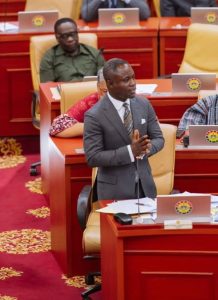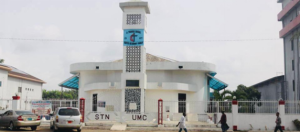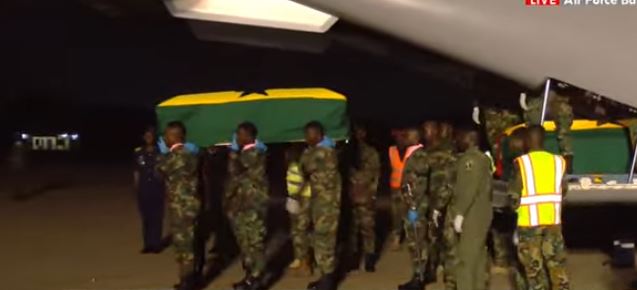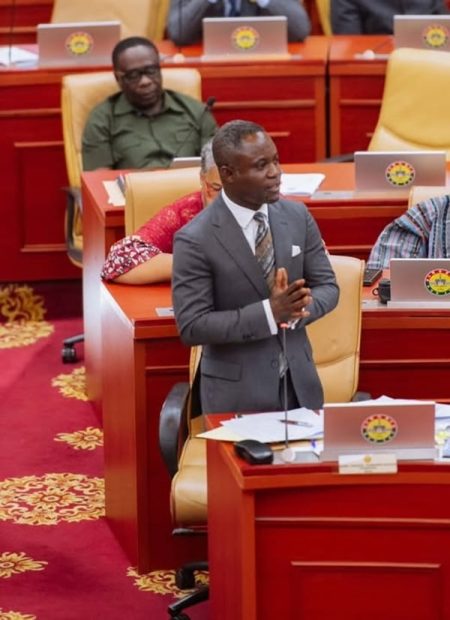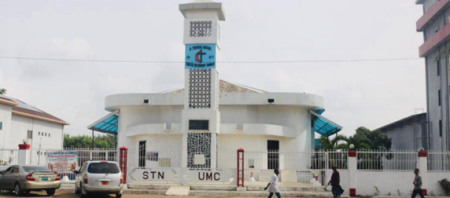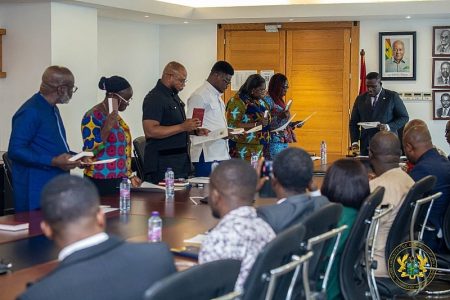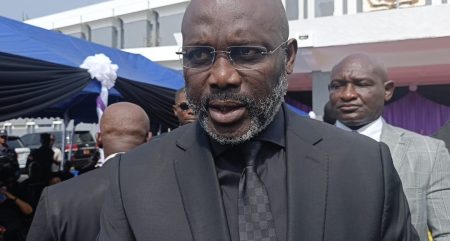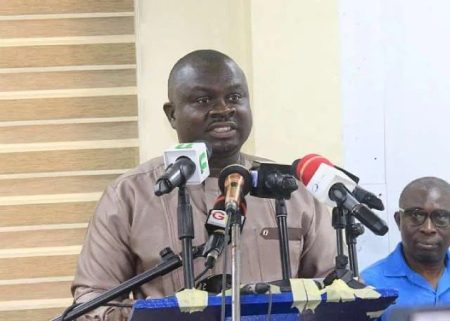The somber arrival of the remains of eight individuals who perished in a military helicopter crash on August 6, 2025, marked a heart-wrenching chapter in Ghana’s history. Led by Chief of Staff Julius Debrah, a high-level government delegation received the flag-draped coffins at the Air Force Base in Accra, the capital city. The solemn ceremony, held under a pall of national mourning declared by President John Dramani Mahama, underscored the profound sense of loss gripping the nation. Senior military officers and government officials stood in respectful silence as prayers were offered for the departed, the atmosphere heavy with grief and the air thick with the unspoken weight of the tragedy. The crash, which occurred in the Adansi Akrofuom District, claimed the lives of prominent figures in government, politics, and the military, leaving a void in the nation’s leadership and a deep scar on its collective psyche.
The tragedy claimed the lives of two serving Cabinet Ministers: Defence Minister Dr. Edward Omane Boamah and Environment Minister Dr. Ibrahim Murtala Mohammed. Their untimely deaths represent a significant blow to the government, depriving the nation of their experience and leadership. Also among the victims was Alhaji Muniru Mohammed, the Acting Deputy National Security Coordinator, whose loss impacts the national security apparatus. The crash also claimed the life of Dr. Samuel Sarpong, National Vice Chairman of the ruling National Democratic Congress (NDC), and Samuel Aboagye, a former parliamentary candidate, highlighting the political dimension of the tragedy. The loss of these political figures represents a setback for the NDC and underscores the fragility of life in the face of unforeseen circumstances.
The military also suffered a heavy blow with the loss of three dedicated officers: Squadron Leader Peter Bafemi Anala, Flight Officer Manin Twum-Ampadu, and Sergeant Ernest Addo Mensah. Their deaths represent a significant loss to the Ghana Air Force and serve as a stark reminder of the risks faced by those who serve their country in uniform. The presence of high-ranking government and party officials, including Education Minister Haruna Iddrisu, NDC General Secretary Fifi Fiavi Kwetey, and Minister for Government Communications Felix Kwakye Ofosu, at the arrival ceremony underscored the national significance of the tragedy and the collective grief shared across the political spectrum. Their presence served as a testament to the unity and solidarity of the nation in the face of such a devastating event.
The helicopter crash sent shockwaves through the nation, leaving citizens grappling with the magnitude of the loss. The simultaneous deaths of such high-ranking officials and military personnel in a single incident created a sense of disbelief and profound sadness. The tragedy tested the nation’s resilience and served as a poignant reminder of the shared vulnerability that binds a nation together in times of grief. The three-day national mourning period declared by President Mahama provided a period of reflection and remembrance, allowing the nation to collectively mourn the departed and honor their service to Ghana. The lowering of flags to half-mast across the country symbolized the shared grief and respect for the fallen.
As the nation mourned, investigations into the cause of the crash commenced. Authorities launched a comprehensive inquiry to determine the factors that led to the tragic incident, seeking answers that would hopefully prevent similar occurrences in the future. The investigation, a crucial step in the healing process, aimed to provide closure to the families of the victims and reassure the public that all measures would be taken to enhance aviation safety. The search for answers underscored the importance of accountability and transparency in addressing national tragedies. The findings of the investigation would be critical not only for understanding the specific circumstances of the crash but also for improving safety protocols and preventing future losses.
The tragedy served as a solemn reminder of the sacrifices made by those who serve in positions of leadership and in the armed forces. The loss of these individuals underscored the inherent risks associated with public service and military duty, highlighting the dedication and commitment required of those who choose these paths. The nation united in honoring their memory, recognizing the invaluable contributions they made to Ghana during their lives. Their legacies, though tragically cut short, would continue to inspire future generations to serve their country with the same dedication and selflessness. The collective grief experienced by the nation underscored the shared humanity that binds people together in times of loss and served as a testament to the resilience and unity of the Ghanaian people.


